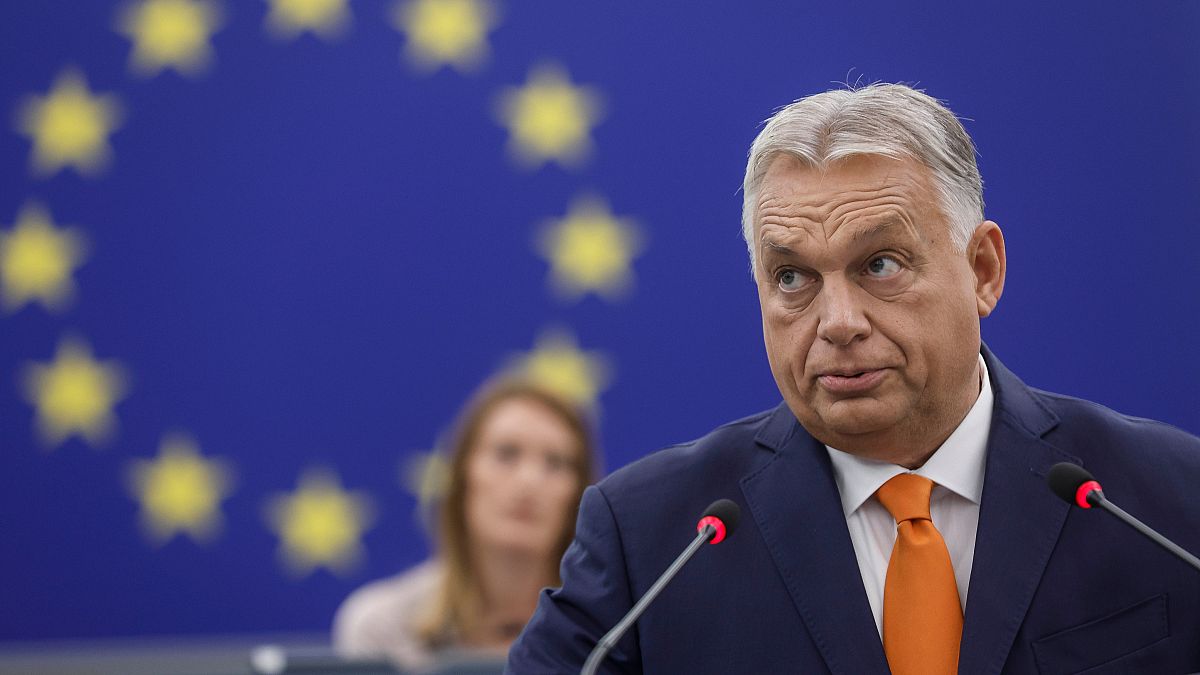The Hungarian PM currently holds the rotating EU presidency, much to the consternation of many in Brussels.
Hungarian Prime Minister Viktor Orbán has suggested that Poland’s government and its prime minister, Donald Tusk, were installed in power by the EU as part of a plot to remove the country’s previous right-wing populist leadership.
The Tusk government was elected in 2023 in an election that saw voter turnout of nearly 74%, a record high.
Orbán, who faces national elections in early 2026, likened what he believes to be Brussels’ meddling in domestic politics to that of the former Soviet Union.
“They’re going to be working on this,” he said of Brussels in a radio interview on Friday. “They need a puppet government. Let’s speak plainly, every empire is like that. The Soviets were like that, weren’t they?”
Orbán made his accusation two days after giving a speech in which he alleged that Brussels is plotting to topple his self-described illiberal nationalist government and install a puppet regime in Budapest.
In Friday’s interview, Orbán specifically lashed out at both EU Commission President Ursula von der Leyen and the leader of the bloc’s largest political group, European People’s Party president Manfred Weber.
He said the two are seeking to do in Hungary what he claims they did in Poland in 2023, when Tusk’s coalition defeated the governing Law and Justice — a right-wing nationalist party that shares many of his views.
“It’s not even a secret conspiracy against Hungary, it is an openly represented, announced plan,” Orbán said, offering no evidence. “The same thing happened in Poland. The Poles also went their own way, they also took an independent Polish policy on migration, gender and the economy.”
He claimed that von der Leyen and Weber “did their best and openly announced that the conservative Polish government should go and be replaced with a new one”.
“This is how our friend Tusk became prime minister in Poland. The same scenario is now happening in the case of Hungary.”
Frequent clashes with Brussels
Orbán has frequently clashed with the EU, which has withheld billions in financial support from Hungary over its alleged breaches of rule-of-law and democracy standards.
Poland’s previous nationalist-conservative government also spent years wrangling with the EU over democratic deficiencies.
In response, Orbán has taken an increasingly combative approach to the bloc, which Hungary joined in 2004, and rallied eurosceptic parties across the EU to create a far-right political force in the bloc’s legislature.
He has also moved Hungary closer to autocracies like Russia and China, seeking foreign investment and loans from Moscow and Beijing as EU funds dried up over his conduct.
Tusk’s government has sought to restore Poland’s democratic institutions that he sees as having been dismantled under the previous Orbán-allied government, but has maintained some conservative policies such as a tough stance on illegal immigration.

